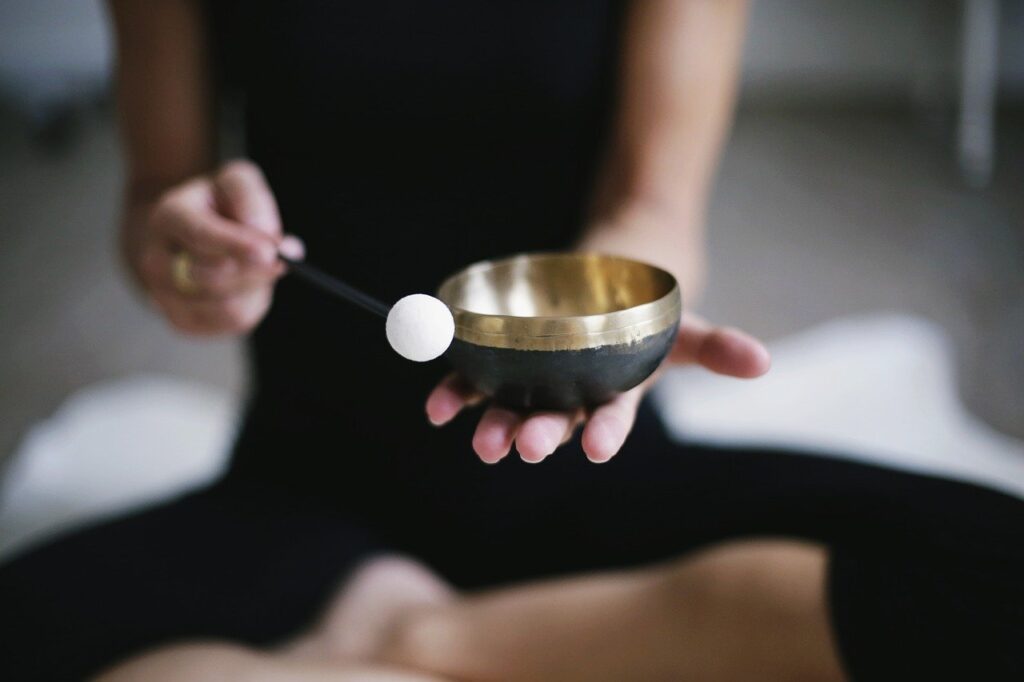
Music is one of the simple pleasures in life, its rhythms and melodies can uplift and inspire, energize and excite, or calm and sooth. In this article we will look at the role music can play within our qigong practice, and consider in what contexts you may or may not want to have music playing while you practice.
The power of music
The deep effects that music can have on us are undeniable. Music can evoke specific emotions or even trigger specific memories. Of course in doing this, they also affect our physiology, and several aspects of this have been studied scientifically. Studies have shown that listening to slower music will tend to lower blood pressure and slow the heart rate, while listening to faster music will tend to increase blood pressure and heart rate. Other factors such as the release of specific hormones, the effect on muscle tone, aerobic and anaerobic work capacity, and even the function of our brains have also been studied (check out the links under ‘Further Reading’ at the end of this article to see some of the results). So the effect of music is not just a purely subjective phenomena, but one that can also be measured objectively.

Of course, just as music affects our physical body, it also affects the quality and flow of our energy (they are connected after all ????). All of the myriad different function of our bodies come together with the flow of our energy, and because they can combine in so many different ways these relationships can be quite complex. The same piece of music may have different effects on different people according to their personality, preferences, and associations they may have with a particular piece of music. It is often not as simple as playing ‘x’ music will have ‘x’ specific effect on our body and energy, but we can usually predict the general effect a piece of music will have on most people – whether it will be calming or energizing and so on. Through experience we may also come to identify more specific effects that pieces of music have on specific individuals – ourselves and others around us, such as evoking certain emotions and moods.
When is it useful to play music during qigong practice?
The main tools we use to work with our energy in qigong practice are our mind, our body, and our breath. Each of these play an important role in allowing us to direct our energy in useful ways within us. They are by no means the only tools that we can use to work with our energy though, and some qigong practices specifically call for the use of additional factors within our environment to influence our energy. Often these are elements found within nature such as the presence of flowing water, the energy of the sun or the moon, and so on. Our energy is not generated and guided solely within us, but is also influenced greatly by all of the many energies around us that we are exposed to.

Sound vibration is one of these types of energy, and as such can be used effectively and beneficially within our qigong practice. Some qigong practices make specific use of this for very specific purposes through the use of musical instruments such as gongs and drums within the practices, or the production of sound with the voice; but simply playing music in the background will also have an effect on our energy flow within our practice. We can make use of the qualities of music to further enhance and even guide the effect of a particular qigong practice that we are doing. Calming music may help us to enter a more deeply relaxed state that will re-enforce the effect of a calming qigong practice. Equally energizing music may help us to more effectively activate the circulation and release of our energy within a more dynamic qigong practice.
Generally no harm will come from experimenting with playing different types of music during your qigong practice, and in doing so you may find some combinations that are truly magical for you in helping to deepen your experience of connecting to and working with your energy.

When is it better not to play music during qigong practice?
As discussed above, music can have a powerful beneficial effect on our body and energy, which perhaps begs the question – why do we not play music ALL the time when we practice qigong?
There are a number of reasons why it is sometimes better not to have music playing while we practice qigong, which come precisely from the fact that music is so powerful.
Because music can have such a strong effect on our physiology, emotions, and energy, when we play music there can be a tendency to simply be carried along with it. This can be great for helping us to enter a state, but if we are not careful we can become reliant upon it. Instead of learning to change our state and direct the flow of our energy from within, we become reliant on an external influence to do this for us. This can make it harder for us to identify, change, and regulate the functions of our own bodies and minds, because in a sense the impact of these subtle changes are drowned out by the effects of the music.
When we practice in silence (or at least without music), it can allow us to tune in more clearly to our own internal functioning, making it easier to gain a fuller understanding of ourselves, and also to work with our energy in more subtle ways. It can also make it easier to tune into the rhythms of the energy of our environment. This can be things like the sound of the breeze blowing through the trees, birds chirping, water flowing, and other sounds of nature, or if we live in a town it can also include the sound of other people going about their activities. These are all natural parts of our environment, and being aware of them can help us to connect to and harmonize with the energy of nature around us more fully and easily.

When to play music, and when not to play music with our qigong practice
We don’t need to take an either/or approach to playing music when we practice qigong. Rather we may choose to play music in some situations, and choose to practice without in others, and so get the benefits of both music and silence.
When we need or want some help to guide our energy into a particular state, perhaps to overcome distractions or the influence of other energies in the environment around us, music can be a really useful tool. However, when we want to focus more deeply and clearly on ourselves and work on developing our own internal skill of directing and harmonizing our energy, it will often be better to practice qigong without music.
It can be an enjoyable thing to try playing different types of music while you practice qigong and see what effect they have on the quality and flow of your energy, but if you want to really develop skill with your energy, you will want to also do a significant amount of your practice without relying on music to affect your state. Overtime as your skill develops and you connect more deeply to your own internal functions, you will find that your energy has its own kind of ‘music’ and it is deeply satisfying to tune into this music and create your own rhythms and melodies that harmonize with the world around you.
Music for qigong
There are of course many different sources you can use to find music to play while you practice qigong, but if you are looking for something different, Ambrose Thompson, a Long White Cloud Qigong instructor in Canada is also a musician and has recorded some tracks that you might like to try. You can find his music and listen to it for free here: https://latencyacousticmassage.bandcamp.com/releases
The music is created and performed on the Kalimba (aka African Thumb Piano). All music comes from Ambrose’s Qigong practice and is designed to inspire and promote a meditative state.
Further Reading:
https://www.msjonline.org/index.php/ijrms/article/view/3734
https://www.ncbi.nlm.nih.gov/pmc/articles/PMC3860955/
https://www.health.harvard.edu/newsletter_article/using-music-to-tune-the-heart
https://www.ncbi.nlm.nih.gov/pmc/articles/PMC3848314/
https://www.health.harvard.edu/staying-healthy/music-and-health
https://www.ncbi.nlm.nih.gov/pmc/articles/PMC6925946/
https://pubmed.ncbi.nlm.nih.gov/31818058/